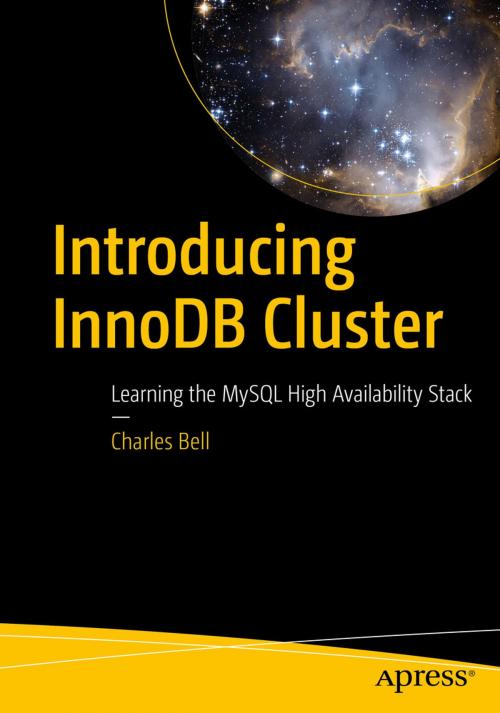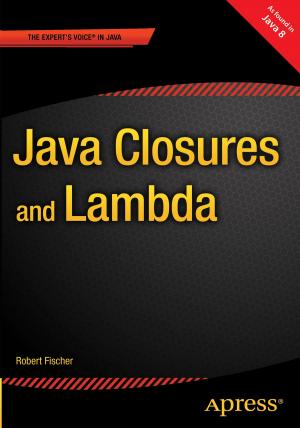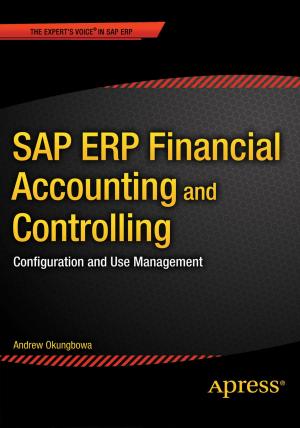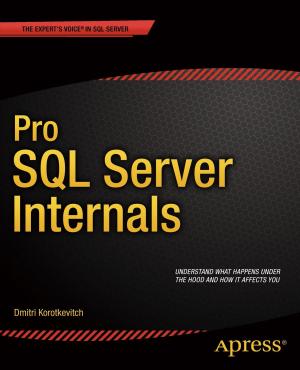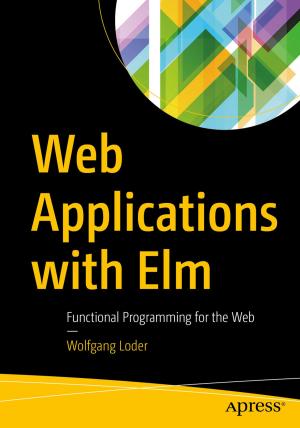Introducing InnoDB Cluster
Learning the MySQL High Availability Stack
Nonfiction, Computers, Database Management, General Computing, Programming| Author: | Charles Bell | ISBN: | 9781484238851 |
| Publisher: | Apress | Publication: | September 7, 2018 |
| Imprint: | Apress | Language: | English |
| Author: | Charles Bell |
| ISBN: | 9781484238851 |
| Publisher: | Apress |
| Publication: | September 7, 2018 |
| Imprint: | Apress |
| Language: | English |
Set up, manage, and configure the new InnoDB Cluster feature in MySQL from Oracle. If you are growing your MySQL installation and want to explore making your servers highly available, this book provides what you need to know about high availability and the new tools that are available in MySQL 8.0.11 and later.
Introducing InnoDB Cluster teaches you about the building blocks that make up InnoDB Cluster such as MySQL Group Replication for storing data redundantly, MySQL Router for the routing of inbound connections, and MySQL Shell for simplified setup and configuration, status reporting, and even automatic failover. You will understand how it all works together to ensure that your data are available even when your primary database server goes down.
Features described in this book are available in the Community Edition of MySQL, beginning with the version 8.0.11 GA release, making this book relevant for any MySQL users in need of redundancy against failure. Tutorials in the book show how to configure a test environment and plan a production deployment. Examples are provided in the form of a walk-through of a typical MySQL high-availability setup.
What You'll Learn
-
Discover the newest high-availability features in MySQL
-
Set up and use InnoDB Cluster as an HA solution
-
Migrate your existing servers to MySQL 8
-
Employ best practices for using InnoDB Cluster
-
Configure servers for optimal automatic failover to ensure that applications continue when a server fails
-
Configure MySQL Router to load-balance inbound connections to the cluster
Who This Book Is For
Systems engineers, developers, and database professionals wanting to learn about the powerful high availability (HA) features, beginning with MySQL 8.0.11: MySQL Shell, MySQL Router, and MySQL Group Replication. The book is useful for those designing high-availability systems backed by a database, and for those interested in open source HA solutions.
Set up, manage, and configure the new InnoDB Cluster feature in MySQL from Oracle. If you are growing your MySQL installation and want to explore making your servers highly available, this book provides what you need to know about high availability and the new tools that are available in MySQL 8.0.11 and later.
Introducing InnoDB Cluster teaches you about the building blocks that make up InnoDB Cluster such as MySQL Group Replication for storing data redundantly, MySQL Router for the routing of inbound connections, and MySQL Shell for simplified setup and configuration, status reporting, and even automatic failover. You will understand how it all works together to ensure that your data are available even when your primary database server goes down.
Features described in this book are available in the Community Edition of MySQL, beginning with the version 8.0.11 GA release, making this book relevant for any MySQL users in need of redundancy against failure. Tutorials in the book show how to configure a test environment and plan a production deployment. Examples are provided in the form of a walk-through of a typical MySQL high-availability setup.
What You'll Learn
-
Discover the newest high-availability features in MySQL
-
Set up and use InnoDB Cluster as an HA solution
-
Migrate your existing servers to MySQL 8
-
Employ best practices for using InnoDB Cluster
-
Configure servers for optimal automatic failover to ensure that applications continue when a server fails
-
Configure MySQL Router to load-balance inbound connections to the cluster
Who This Book Is For
Systems engineers, developers, and database professionals wanting to learn about the powerful high availability (HA) features, beginning with MySQL 8.0.11: MySQL Shell, MySQL Router, and MySQL Group Replication. The book is useful for those designing high-availability systems backed by a database, and for those interested in open source HA solutions.
